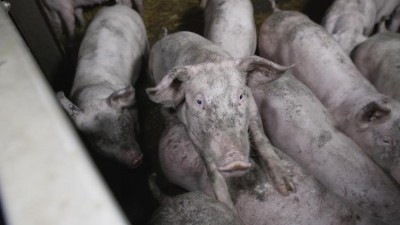News
The future of food standards in the UK at risk: FSA report

The FSA and FSS joint ‘Our Food’ report reviewed food standards across the UK for 2023 and is the third such report since the UK left the EU.
It found that, overall, food standards remained stable in 2023, despite the rising cost-of-living and inflation which continued to impact grocery bills for consumers. However, food businesses continued to grapple with labour shortages and increased supply chain costs – read the full report here.
A major recurring theme was the increased pressure being placed on the UK’s system of hygiene and safety controls. Financial challenges and skills shortages (some as a result of financial constraints) facing local authorities are impacting, and may continue to affect, the delivery of food safety and standards requirements.
According to the FSA, local authorities are now reporting a large backlog of food businesses overdue inspections in 2023, while recruitment challenges made it harder for FSA and FSS to maintain supply of OVs.
If you're interested in hearing about the latest food safety threats, and the tools and techniques available to ensure integrity and compliance, register to watch our annual Food Safety Briefing here.
Continued decline
The number of food safety allocated posts supported by local authorities in England, Wales and Northern Ireland plateaued last year after rising in the wake of the pandemic, while the current level of resourcing remains considerably lower than a decade ago – 9.1% fewer food hygiene officers and 32.5% fewer food standards officers in post by October 2023 compared to 2012/13.
Commenting on the findings, FSA chair Susan Jebb said the ongoing shortages were a cause for concern that have created a real risk that future standards within food businesses will deteriorate – putting people at greater risk of illness and risking a loss of trust in the UK food system.
“This would have implications for the UK’s overall food security and the UK’s agri-food sector that contributes £148bn to the national gross added value,” said Jebb. “Because of this we’re asking government, industry and regulators to work together on these and the other challenges highlighted in our report.
“The cooperation of everyone in the food system, from government departments and food businesses, to our colleagues in local authorities, remains essential for ensuring people have access to safe, healthy and sustainable food.”
The FSA and FSS are calling on government, industry and regulators to strengthen those parts of the food system that have been in decline.
Stretching resources
Heather Kelman, FSS chair, added: “Our food system remains robust, but these workforce shortages are stretching resources and placing extra strain on the agencies responsible for keeping food safe.
“This is now the third year where concerns have been raised and we need to act now to maintain high standards and ensure public trust in our food supply chain. Food Standards Scotland (FSS) has been vocal for some time about the sustainability of the current model and the impact the lack of resources is having on the regulation of food businesses.
“We have raised this issue with Scottish Ministers, and it is one that we, and other stakeholders, continue to take very seriously. We know the system needs reform and we have proposals for reform, but we don’t have the necessary funding to deliver changes to the current system.”
The report also found that the proportion of households in England, Wales and Northern Ireland reporting food insecurity rose to 25% in 2023, the highest rate since the FSA began collecting this data in 2020.
Analysis showed that about 2.5 million more adults across these nations have been pushed into food insecurity since 2022. Although directly equivalent data was not available for Scotland, FSS research showed that more than a fifth (22%) of people surveyed not being able to afford essential food shopping in the past month and 44% reported worrying about affording food in the past 12 months during 2023.
Meanwhile, Veganuary co-founder Matthew Glover has accused RSPCA Assured of “welfare-washing” and has called for the end of the scheme describing it as “meaningless.”


















